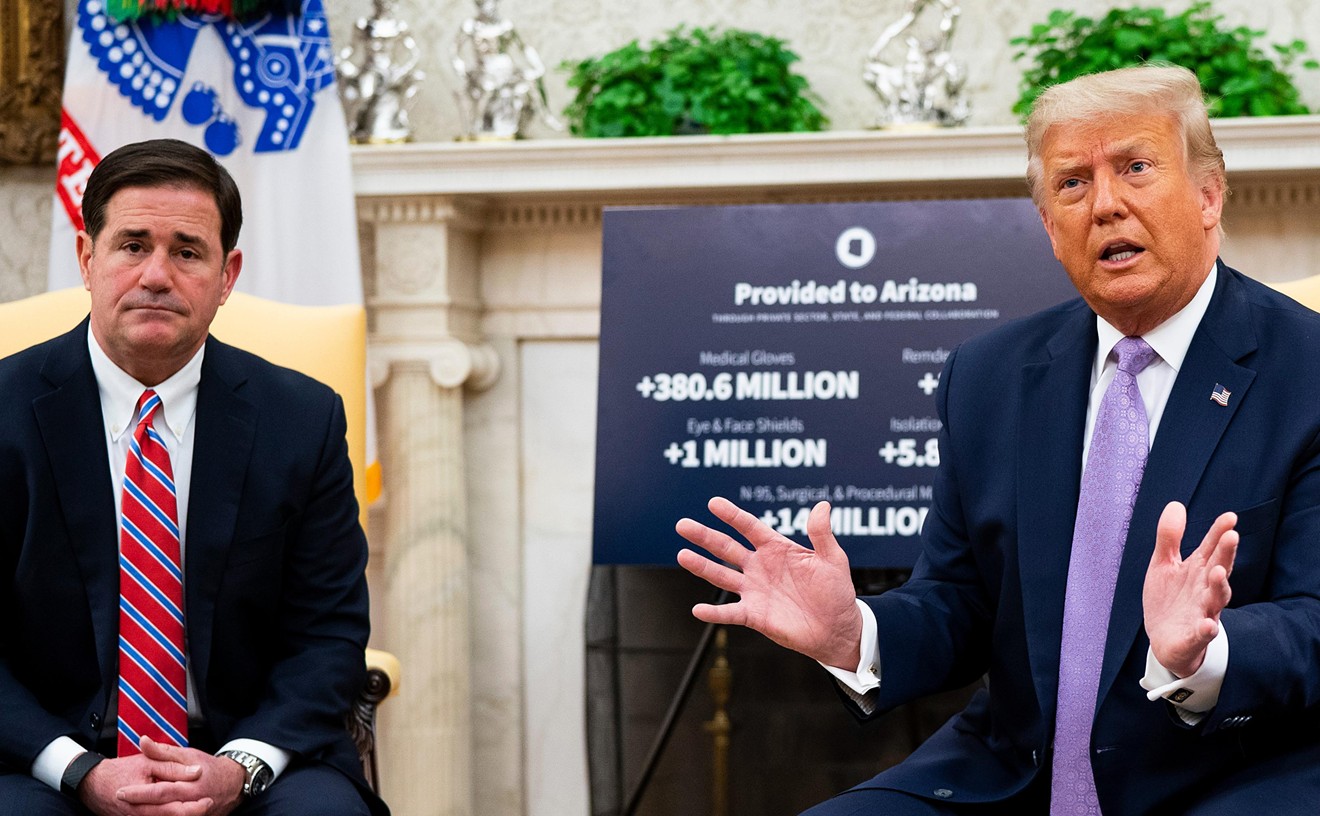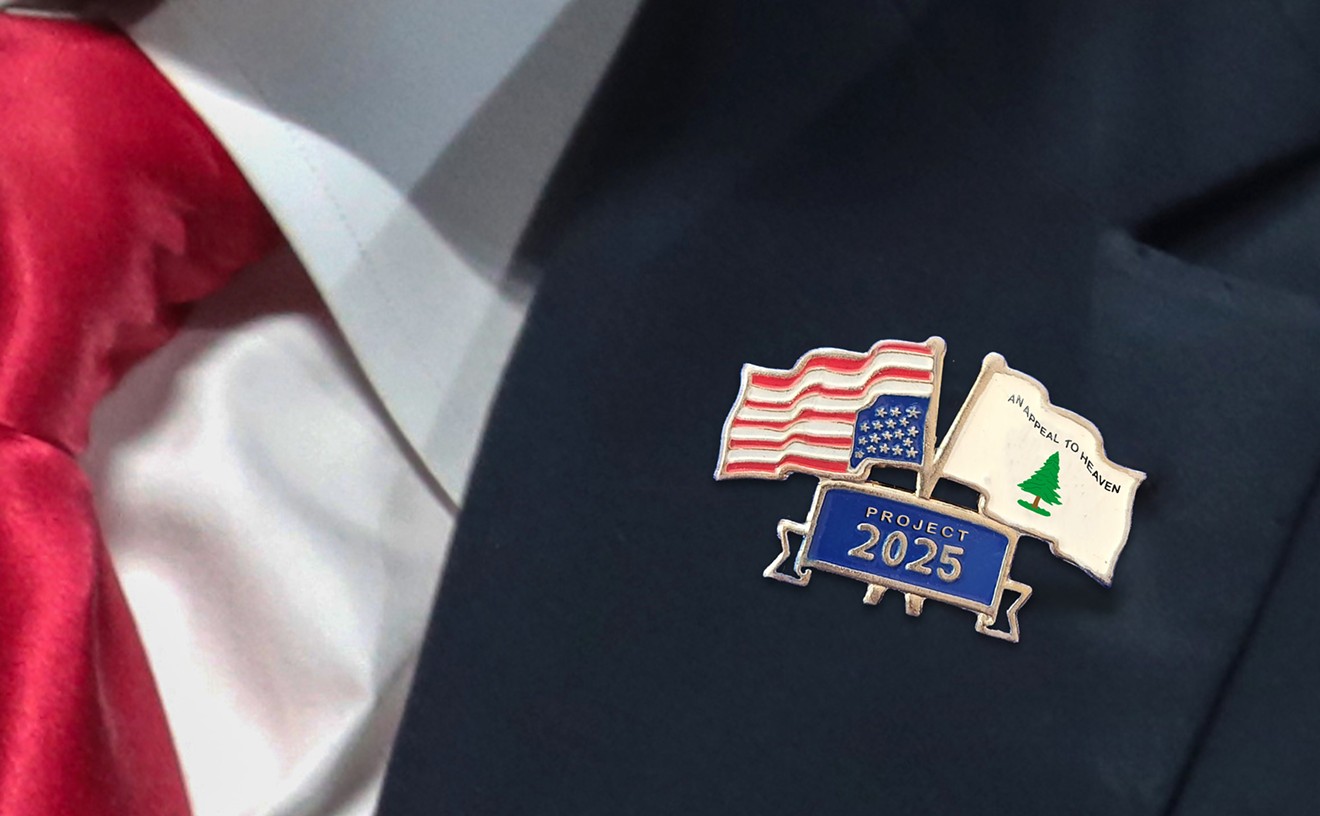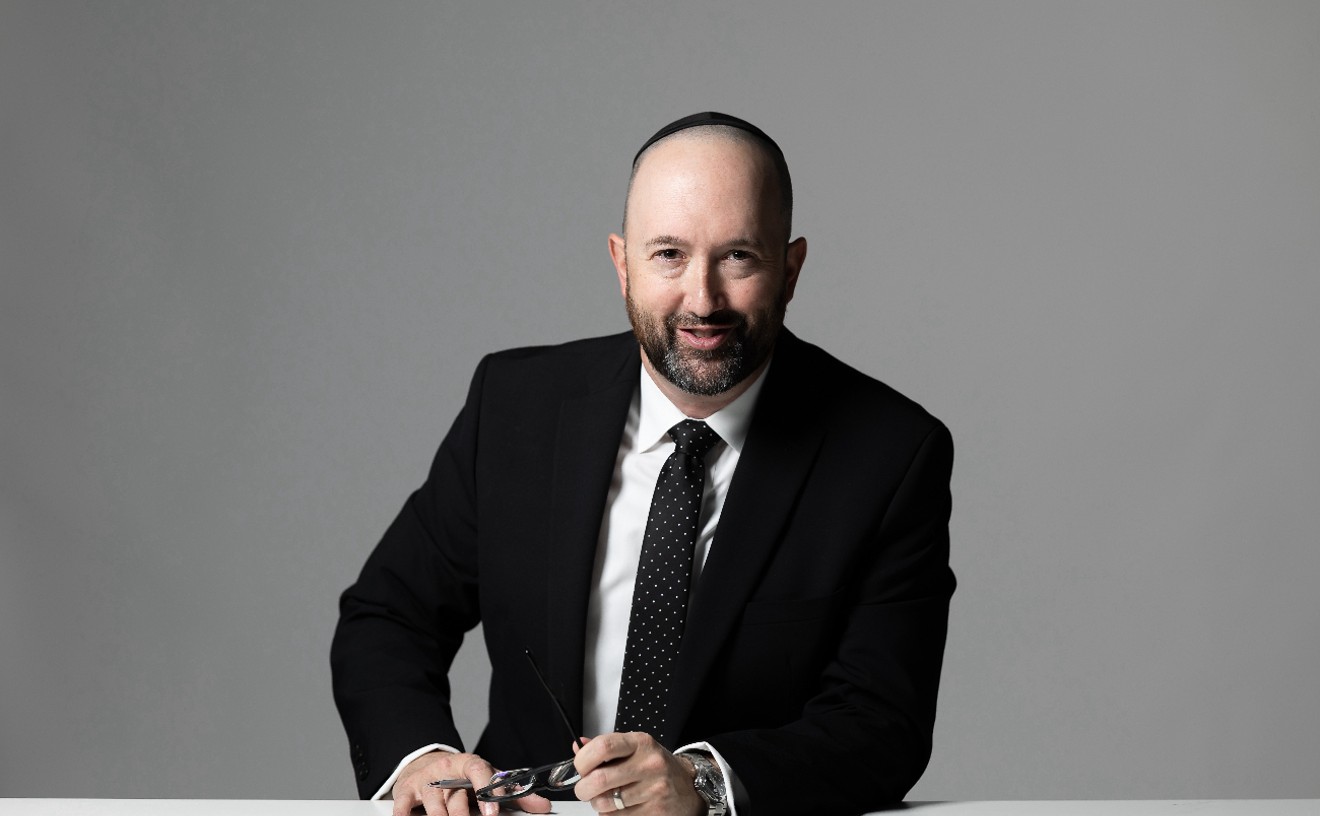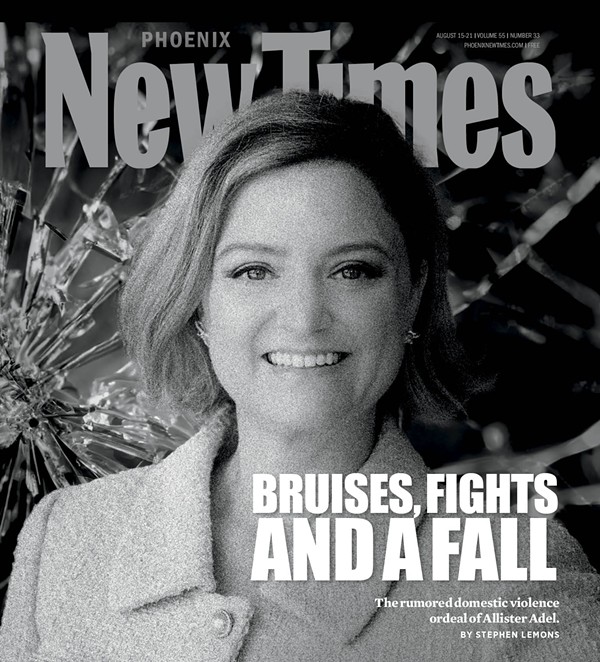In a ruling with wide impact on the Arizona medical-marijuana program, Zander Welton and his family have won their battle to provide extracts to the boy for his seizures.
The East Valley family sued on October 29 in Maricopa County Superior Court, receiving legal help from the American Civil Liberties Union of Arizona, after threats of possible felony prosecution by County Attorney Bill Montgomery.
Judge Katherine Cooper sets Montgomery straight in a ruling filed on Friday, telling him and the state plaintiffs that the Arizona Medical Marijuana Law "authorizes qualifying patients to use extracts, including CBD oil, prepared from the marijuana plant."
See also: -Half-Baked: Medical-Pot Edibles Are Legal, but Prosecutors and Cops Aren't Backing Off -Arizona Medical Marijuana Lawsuit Filed by ACLU to Help Boy Receive Plant Extracts
Montgomery, a conservative politician who's taken a hard line on marijuana issues, never threatened the Weltons directly, but he warned that anyone caught with marijuana extracts, such as oils, might face felony prosecution whether or not they were qualified patients under the voter-approved 2010 Medical Marijuana Act. In recent weeks, though, he dropped one such criminal case against a patient and lost the narcotics argument in another.
Judge Katherine Cooper's ruling suggests Montgomery may have reading comprehension problems. She points out, as New Times noted in an October 10 feature article on the subject, that the 2010 law plainly states that marijuana "and any mixture or preparation thereof" is legal for qualified users.
The Weltons claim in their civil lawsuit that their then-5-year-old son's seizures and overall quality of life had been improved considerably because of extracts of marijuana. They sought a declaration from the court about the meaning of the text of the medical-marijuana law, not wanting to be thrown in prison for giving Zander his medicine. The boy had responded best to oil made from cannabis that was richer in the chemical compound cannabidiol or (CBD) than THC, the compound known to produce marijuana's psychoactive effects.
Cooper gives the family the right under state law to re-start Zander's treatment. Sounding somewhat distrustful of Montgomery, Cooper writes, "Unless Plaintiffs have a basis for fearing that Defendant Montgomery may prosecute them regardless of the Court's ruling, an injunction against Defendant is not warranted."
The problem that led to the lawsuit seems to have begun in 2012 with the busts of cannabis clubs and medibles-makers who allegedly sold marijuana without a state license. Montgomery and Yavapai County Attorney Sheila Polk lumped narcotics charges on defendants found in possession of food infused with marijuana extracts.
Montgomery -- and, in fact, other county attorneys around Arizona -- claimed that the voter-approved law was trumped by a decades-old clause in state narcotics law that makes possession of "resin extracted" a serious felony.
Cooper's ruling doesn't mention the word narcotics. Instead, she pulls out the dictionary, defining for Montgomery the words "any," "mixture" and "preparation."
"The effect of these words is to allow patients to employ 'certain process[es]' to 'adapt[]' marijuana 'for a particular purpose' and a 'convenient and practicable use,'" she wrote, referring to her dictionary findings. She goes on to say:
"Second, the drafters included the phrase "and any mixture or preparation thereof." These words expand the allowable manipulation of the plant. To conclude that patients can only use unmanipulated plant material would render the phrase meaningless. Basic statutory interpretation prohibits such a result..."We are thrilled by this decision," said Jennifer Welton in a statement released by the ACLU of Arizona, (she turned down our request for interview). "I am so relieved that we can give Zander the right form of this medication, the form that will provide him with the best benefit and help him have a fuller life. We hope this battle is over and that county officials will stop trying to keep Zander from his medicine.""Third, the statute provides that medical marijuana can be prepared 'for consumption as food or drink.' Marijuana preparations that are consumed as food or drink may involve marijuana extracts.
An extract is a method of removing material from the plan(t), usually cannabinoids. Extractions facilitate proper dosing and, in some cases, make it feasible for patients who cannot consume the medicine in plant form to receive it another way... Again, the statute itself contemplates patients preparing marijuana in a manner, including extract form to meet their medical needs...
Defendant Montgomery acknowledges that the AMMA means that 'flowers can be crushed or ground up and added to other foods to be consumed' (Response, p. 9). However, he contends that there is a 'prohibition on concentrating the chemicals in the marijuana flower' in the AMMA... Where? The Court finds no such 'prohibition' in the statute."
The ruling has an impact beyond the cases of parents of sick kids and other seriously ill patients, though. It opens up the possibility of Arizona medical-marijuana dispensary sales of hashish, hash oils used for "dabbing," and other concentrates that have been popular in Washington and Colorado since their legalization there for all adults 21 and older. And it seems like it might affect current, if not recent, criminal cases based on a patient's possession of narcotics, in which the "narcotics" was actually a preparation of marijuana.
Montgomery, who this year also lost a Superior Court case in which he'd pushed the Board of Supervisors to prohibit dispensaries from opening on non-incorporated county land, has said he'd like to keep pushing in court until the voter-approved law is overturned.
Got a tip? Send it to: Ray Stern.
Follow Valley Fever on Twitter at @ValleyFeverPHX. Follow Ray Stern on Twitter at @RayStern.












